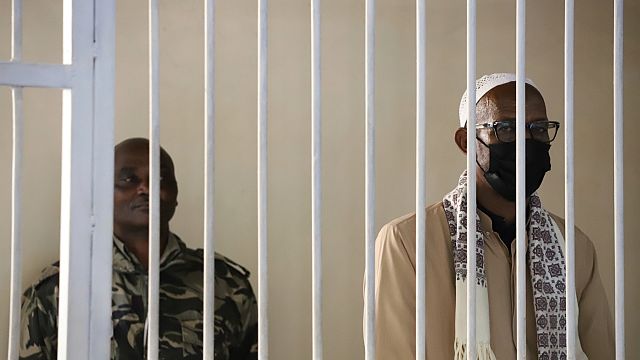In a courtroom in Kenya’s bustling capital, Nairobi, a verdict was reached that sent shockwaves through the nation. Two Kenyan men, Hussein Mohamed Abdille Ali and Mohamed Abdi Ali, were found guilty of facilitating the harrowing 2019 attack on a prestigious hotel complex. The attack, which resulted in the tragic loss of 21 lives and left 28 others wounded, had brought a wave of terror and sorrow to the country.
The presiding Judge Diana Kavedza meticulously reviewed the evidence presented by the prosecution, concluding that the two men had played a pivotal role in the meticulously planned assault. The court determined that Hussein Mohamed Abdille Ali and Mohamed Abdi Ali had not only provided financial support but also aided in obtaining forged identification documents for the militants involved in the siege of the DusitD2 hotel complex.
The shadow of the al-Qaida-linked militant group, al-Shabab, loomed large over the proceedings. The organization brazenly claimed responsibility for the heinous attack, marking yet another chapter in a series of brutal assaults orchestrated by the group. The scars of previous tragedies, such as the Westgate Shopping Mall massacre that claimed 67 lives and the horrific Garissa University attack where 147 students lost their lives, still lingered in the memories of Kenyans.
Al-Shabab’s relentless campaign of violence against Kenya, fueled by the nation’s military involvement in Somalia since 2011, underscored the complex web of geopolitical tensions in the region. The militants, based in Somalia, viewed Kenya’s intervention as a direct affront and vowed to exact revenge through a series of deadly attacks targeting civilians and security forces alike.
During the trial, a total of 45 witnesses provided crucial testimony, shedding light on the intricate web of connections that led to the fateful assault. The prosecution’s thorough presentation of evidence left little doubt about the culpability of the accused men in aiding and abetting the attackers.
As the verdict was delivered, the courtroom held its breath in anticipation of the impending sentencing. Judge Diana Kavedza’s decision to order a probation report within 21 days hinted at the gravity of the crimes committed. The date set for the sentencing, June 19, loomed ominously, marking a crucial juncture in the pursuit of justice for the victims and their families.
Amidst the grim details of the trial, a poignant reminder of the global impact of terrorism emerged. Foreign nationals, including an American and a Briton, were among those who tragically lost their lives in the 2019 attack, underscoring the far-reaching consequences of extremist violence.
As Kenya grappled with the aftermath of yet another senseless act of terror, questions lingered about the broader implications of the case. The intricate network of radicalization and extremism that fueled the attackers raised concerns about the need for enhanced security measures and international cooperation to combat the scourge of terrorism.
In the wake of the trial’s conclusion, voices of resilience and unity echoed across the nation. The resolve to stand strong against the forces of hatred and violence was palpable, as communities came together to honor the memory of the victims and reaffirm their commitment to peace and solidarity.
The courtroom drama, with its twists and revelations, served as a stark reminder of the fragility of peace in a world marred by conflict and extremism. As the nation awaited the final chapter in this tragic saga, the legacy of those lost in the 2019 hotel attack served as a poignant reminder of the enduring fight for justice and security in an uncertain world.
Originally reported by Africa News
Read more at: http://www.africanews.com/2025/05/23/kenyan-court-finds-two-men-guilty-of-facilitating-2019-hotel-terrorist-attack/

